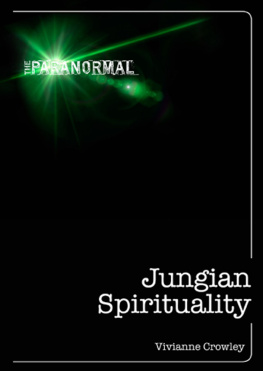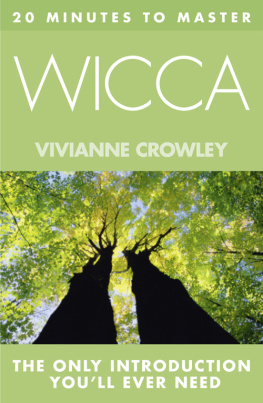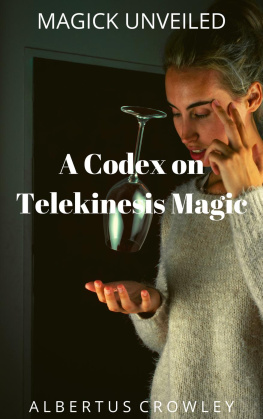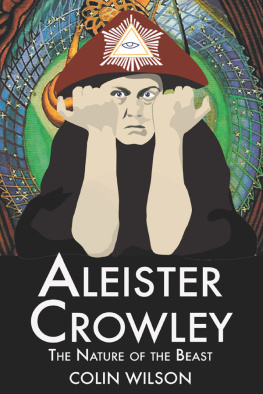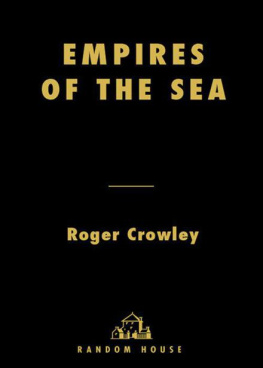Vivianne Crowley - Jungian Spirituality
Here you can read online Vivianne Crowley - Jungian Spirituality full text of the book (entire story) in english for free. Download pdf and epub, get meaning, cover and reviews about this ebook. year: 1998, publisher: F+W Media, genre: Religion. Description of the work, (preface) as well as reviews are available. Best literature library LitArk.com created for fans of good reading and offers a wide selection of genres:
Romance novel
Science fiction
Adventure
Detective
Science
History
Home and family
Prose
Art
Politics
Computer
Non-fiction
Religion
Business
Children
Humor
Choose a favorite category and find really read worthwhile books. Enjoy immersion in the world of imagination, feel the emotions of the characters or learn something new for yourself, make an fascinating discovery.
- Book:Jungian Spirituality
- Author:
- Publisher:F+W Media
- Genre:
- Year:1998
- Rating:4 / 5
- Favourites:Add to favourites
- Your mark:
- 80
- 1
- 2
- 3
- 4
- 5
Jungian Spirituality: summary, description and annotation
We offer to read an annotation, description, summary or preface (depends on what the author of the book "Jungian Spirituality" wrote himself). If you haven't found the necessary information about the book — write in the comments, we will try to find it.
Jungian Spirituality — read online for free the complete book (whole text) full work
Below is the text of the book, divided by pages. System saving the place of the last page read, allows you to conveniently read the book "Jungian Spirituality" online for free, without having to search again every time where you left off. Put a bookmark, and you can go to the page where you finished reading at any time.
Font size:
Interval:
Bookmark:

JUNGIAN
SPIRITUALITY
VIVIANNE CROWLEY

IN FOND MEMORY OF IAN AND SAM,
TO CHRIS AS ALWAYS,
AND TO BARBARA, ANITA, JOAN AND REYN,
MANY THANKS.
Vocatus atque non vocatus, Deus adherit.
(Called or not called, the God is there.)
FROM THE ORACLE AT DELPHI. WRITTEN ABOVE THE FRONT
DOOR OF JUNGS HOME IN KSNACHT.
If you were to name some famous psychologists, two people might spring to mind Sigmund Freud and Carl Jung. This book is about the latter.
Carl Jung lived for 86 years, born on 26 July 1875 and dying in 1961. Many of the terms that he invented or developed have entered our everyday vocabulary archetypes, the collective unconscious, Persona, Anima, Animus, Shadow, Introversion, Extraversion. His life spanned most of the inventions that we now take for granted. He was born in the last quarter of the nineteenth century, the era of horse and carriage. Some of his last writings before he died were about UFOs. He was born into the nineteenth century; but was in every sense a modern man.
The nineteenth century was an era of vast upheaval in society and thought, in which old certainties were swept away. This was the scientific era of Darwin and his famous book On the Origin of Species. The literal teachings of Christianity were overturned by science. Evolution theory showed that the world was not created in seven days. It was not four thousand years old (about the length of then known recorded history), but millions, billions of years old. The human race itself was but a blip in time. What then was the life of an individual? We humans were no longer sure of our place in the scheme of things. We were no longer the chosen of the Judaeo-Christian God; destined to have dominion over all. Perhaps we were nothing but evolved apes.
Other adjustments were also required. Industrialization meant huge migrations of people into cities. The old ties to place, kin, clan and religious faith were broken. The nuclear family became the norm mother, father and children living separately from grandparents. Now, in the West, the single-parent family and single-person households make up much of our society. The units become smaller; the individual is more separate and alone. Social disorganization, alienation, anomie and increased suicide rates are the penalties for the increased opportunities and material comfort that civilization brings.
In culture, the outcome of social change was a turning inward. People could no longer rely on the old religious certainties. They could trust only one thing their own experience. New themes developed in art. Great art was no longer about historical and religious events. It celebrated the realm of the personal and of personal experience. Painting invited us to share the emotions of the artist. The symbolist movement of the late-nineteenth century began the journey inward. The surrealists of the twentieth century continued it. Literature was also turning to explore inner consciousness and the stream-of-consciousness novel was born. This was not a story, a narrative, but the outpourings of the writers inner world and mind.
As the arts turned to the inner realm, so too did religion. It might seem that religion has always been about the inner world, but religion serves many functions. It can be a system for imposing morality and social control. It can provide sets of ritual actions that bind societies together. Often it is much more about society than about the individual. This is why the Pagan Roman Empire was so intolerant of Christianity. Everyone in the Empire was free to worship and believe in whatever deities they chose providing they also paid honour to the Emperor, the representation of the Roman state and the unifying force within the Empire. Those who did not were political subversives. Christianity was a political crime, not a spiritual one.
Science had disproved the literal truth of many of the teachings of religion, but this did not necessarily mean an abandonment of spirituality. Those who were more aware saw that, freed of the shackles of superstitious doctrine, a new spiritual awareness might evolve; one based on our own spiritual experience. As materialism advanced, so many sought greater spiritual contact. Mysticism revived and the works of the Anglican female mystic Evelyn Underhill became popular. People turned to monastic spirituality, while rejecting orthodox Christianity; just as people today listen to Gregorian chant. While religion might not be literally true, it might symbolize a deeper truth and the way to this truth lay within. Spiritual exploration was also taking place outside mainstream religion. The late-nineteenth century was the era of spiritualism, of psychic research, and of the great occult orders such as the Golden Dawn who sought to revive the knowledge of the Western Magical Tradition in a form suitable for the modern world. Many of the great thinkers and artists of the period were part of this esoteric revival. Others sought their inspiration in the East. In the nineteenth and twentieth centuries, empires were made and lost and East met West. The West went eastward and invaded and colonized the great civilizations and cultures of the Orient. Some of the colonialists were transformed by those they had colonized. They returned with the spirituality of the East. Sacred texts, teachings and teachers of Buddhism, Hinduism and Taoism journeyed westward.
In one of his last works, The Undiscovered Self, Jung argued that the unifying force of Western culture had been the symbols and myths of religion. From the eighteenth century Age of Enlightenment onwards, we lost touch with these myths and symbols. Science helped us embrace the intellect but at the expense of the realm of feeling and spirit. The ancient path of mysticism was one way of reuniting ourselves with our myths and symbols. Another way was offered by a science of the new era psychology and psychotherapy. Psychotherapy in its various forms the examination of our fantasies, dreams and visions could show us new symbols and new sources of renewal that conventional religion could no longer provide. For Jung, psychotherapy offered not just a means of reconciling ourselves with past trauma but a new way of approaching the goal of all spiritual traditions unity with the divine. This, then, was Carl Jungs mission.
Carl Jung worked as a psychotherapist for nearly sixty years. His writings fill eighteen volumes. The books about him and his work fill whole bookcases in bookstores and libraries. All over the world, therapists train as Jungian analysts, and non-analysts meet to discuss his work. The wealth of literature about Jung and his thought is vast: Jung and the East, Jung and Christianity, Jung and Astrology, and Alchemy, and Gnosticism, and UFOs the list is endless.
From UFOs a scientific method of travelling to the stars to the ancient art and science of astrology may seem a strange transition, but for Jung it was not. Above all, he was interested in the unknown whether the depths of the unconscious mind, the mysterious and sometimes frightening world of mental illness, or the Gnostic sciences and the hidden mysteries of West and East. Some say he was a prophet, others a great psychologist, others a visionary, a guru, a charlatan, a dreamer. People loved him and worshipped him, or hated him and despised him. They were rarely neutral; which is why biographies are still being written today.
Jungs theories were grounded in great scholarship, but his psychology was essentially experiential. It drew on his own experiences, his career as a hospital psychiatrist working with the severely mentally ill, and case studies of hundreds of private patients, many of whom came to him for personal development and growth rather than because they were sick. It is a psychology that has inspired others and above all it is a psychology of the spirit. For the spiritual quest, the search for the divine, was something that absorbed Jung from his earliest years.
Font size:
Interval:
Bookmark:
Similar books «Jungian Spirituality»
Look at similar books to Jungian Spirituality. We have selected literature similar in name and meaning in the hope of providing readers with more options to find new, interesting, not yet read works.
Discussion, reviews of the book Jungian Spirituality and just readers' own opinions. Leave your comments, write what you think about the work, its meaning or the main characters. Specify what exactly you liked and what you didn't like, and why you think so.

